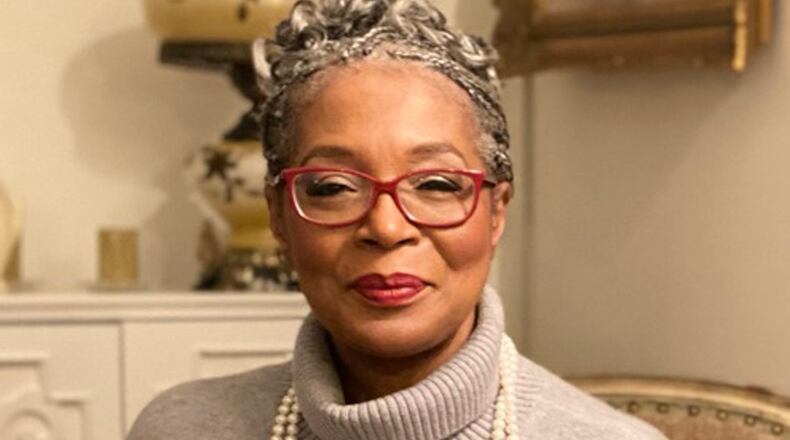In 1802, a year before Ohio was admitted into the Union and three years before Dayton was incorporated as a village, John Issac Davis, a slave in Kentucky, ran away with his infant daughter, Charity, and settled in the area that became the city of Dayton in 1841.
Patricia Smith Griffin is one of many descendants who grew up with the stories passed down by Charity to the 12th generation.
“Charity grew up with the city of Dayton,” said Griffin, “and her family and city’s stories were shared through the generations, along with documents, letters and photographs.” Griffin has spent long hours researching, receiving assistance from family and other researchers, documenting the family stories.
Charity, who married Caeser Broady, was part of Dayton’s Underground Railroad and an early participant of the Suffrage Movement. “She heard Sojourner Truth give her famous speech in Akron in 1851, and later founded the Montgomery County Equal Suffrage Association,” said Griffin, who noted that the movement leaders assumed it could be more successful without including voting rights for Black women.
“Some family members lived in what was then called Africa town, along the canal and to the east, later becoming locations for Bomberger Park and Stivers, the Oregon District and St. Anne’s Hill areas,” said Griffin. “Many emancipated and runaway Blacks came to Dayton to work on the canal and had founded Africa town by the 1830s and 40s.”
Charity learned about and warned everyone of planned attacks by white mobs, and although many big city papers covered the violence that destroyed Africa town, little was written here.
Jewelia Galloway, a great-granddaughter of Charity, was born in Cincinnati in 1873 to William Galloway, who died when she was an infant. Her mother left her to be raised by grandparents James and Julia Broady Chittenden.
“When she graduated from high school, she moved to Dayton to live with Charity, and was inspired to work with the suffrage movement,” said Griffin.
She married Charles Higgins in 1893 and, while they had six children, were both extremely active in the Black community. He was among the first Black graduates from Bonebrake (United) Theological Seminary, a WWII veteran, executive secretary of the West Dayton YMCA, friend of Paul Laurence Dunbar and executor of his estate.
“Jewelia helped form and was a member of a Black chapter of the American Red Cross, executive of Mary Scott Home for the Aged, and of the Community Chest,” Griffin noted. In addition to her continued and expanded work for Equal Suffrage, she was a founding member of the Women’s Christian Association (WCA number 2 - the YWCA for Black women on Summit Street), where she served for more than 20 years.
Although Griffin, the great-granddaughter of Jewelia Galloway Higgins, is 63 and now lives in Pennsylvania, she’s very involved in preserving the legacy of her family, particularly of Charity and Jewelia. “These stories have been told through every generation – from mothers, grandmothers, aunts and uncles, until we could recite them as easily as the Lord’s Prayer.
“I remember thinking … how could one woman, Charity Broady, have lived through so many epic events in history, influencing so many generations … and I began this research.”
An historic marker for Jewelia Galloway Higgins, who died in 1955, will be dedicated on Sunday, July 17, at the 11 a.m. service of First Wesleyan Church, 401 Gramont Ave., with the church and family history presentation by Griffin.
“There will be grandchildren of Jewelia and Charles Higgins at the event, family who actually knew them. There are dozens of descendants, ‘Charity’s Children,’ who still live in Dayton, 12 generations and counting.”
Later that day, from 4-6 p.m., there will be a celebration of the marker and an ice cream social at the former site of the Summit Street Y, 236 South Paul Laurence Dunbar St., where the marker will be placed.
The family’s archives are preserved and fundraising has begun through The Dayton Foundation, where donations made to The Charity’s Children Project, Inc., will eventually be used “to build a multi-cultural center to house these archives for access to historians.”
Contact this writer at virgburroughs@gmail.com.
To donate, checks can be mailed to The Dayton Foundation, 1401 S Main St., Suite 100, Dayton OH 45409 (designate “The Charity’s Children Project Fund #8849″ on the check.
About the Author


